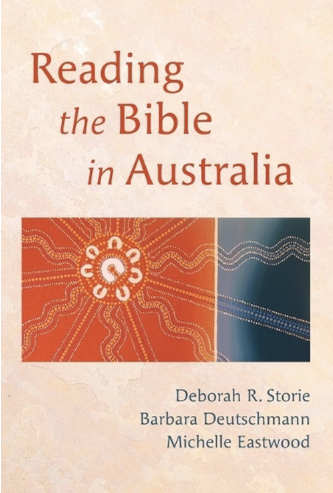Review: Reading the Bible in Australia
Meredith Lake’s recent, bestselling history of the Bible in Australia had a surprising impact, not the least because she showed that the Bible has been read in multiple ways, and that some of these were subversive, against the idea that the Bible was simply a colonialist tool, akin to the British laws the colonists brought with them. This new collection of essays builds on Lake’s book and looks deeper at how being Australian steered readings of the Bible and how reading the Bible has influenced ideas of what it means to be Australian.
The most obvious way to start, as the book does, is with Indigenous readings of the Bible. As with British laws, Indigenous Australians have recognised how the Bible has been both a tool for their subjugation and an opportunity for liberation. As Ray Minniecon points out, Indigenous Australians read the Bible and saw prophecy about justice but recognised the hypocrisy of many white Christians. Anne Pattel-Gray is blunt in her assessment of how racism lingers within Australian churches.
It may be controversial for more conservative Christians to learn that, as Minniecon and Naomi Wolfe argue, Indigenous Australians already knew God before colonisation (something Native Americans also attest), but Minniecon compares the conservative doubters of this idea to Job’s friends, who are smug in their theological assurance, and don’t see God’s universe in a wider perspective.

In his essay on the Book of Job, Minniecon also criticises more evangelical readings of the Bible for their linking of sin and hardship (a link Job’s friends also make), which may indicate that Aboriginal people are somehow more sinful or faithless because of the hardships they have endured. (Minniecon suggests that Indigenous Australians respond better to the Creation stories than to the Fall, perhaps unsurprisingly.) This is just one of the skewed readings this collection of essays aims to address.
Deborah Storie challenges John Howard’s (and subsequent conservatives’) linking of biblical values and laissez-faire economics, as part of a wider argument against the tendency to use the Bible to reinforce views one already holds. She takes Australian Christian Lobby leaders to task for proof-texting (selective quoting of biblical texts to boost a particular interpretation).
Storie notes that the Bible is read in various ways. But as Christianity is pushed to the margins in Australian society, the loud voices of the ACL give the impression that their version is the main version of Christianity. Meredith Lake, in a kind of epilogue, notes that the tone of these essays is more leftist, so not quite representative of a multiplicity of readings, and also more cautious in making definitive pronouncements. Ironically, if one agrees to a postmodern biblical scholarship that sees multiple interpretations as normal, then it is harder to criticise a conservative reading of the Bible as wrong-headed.
Jonathan Cornford, conversely, in what he happily admits is an ‘unfashionable’ essay (at least in postmodern circles), does make a definitive, ‘coherent’ moral reading, and he excoriates the economic attitudes of Australians, arguing that they are contrary to the economic message of the Bible. Of course, our economic prosperity is based on the hostile take-over of a country originally argued to be empty but in reality filled with Indigenous Australians who were dispossessed and often murdered. Subsequently our prosperity has continued through largely unsustainable methods (whaling, logging, mining, inappropriate English farming methods). The legacy of this is ongoing injustice for Indigenous people, environmental crises and ‘affluenza’.

The Bible may have been part of the colonising culture, but Cornford argues it wasn’t read properly. He sees it as having been rendered tame by a deliberate process of twisting it to fit the frame of capitalist ideology. For Cornford, though, the hope is that the Bible remains, if it is read afresh, ready to critique that ideology, as has, Lake notes, sometimes been the case in the complex history of the Bible’s journey through the Australian landscape.
Nick Mattiske blogs on books at coburgreviewofbooks.wordpress.com and is the illustrator of Thoughts That Feel So Big.












